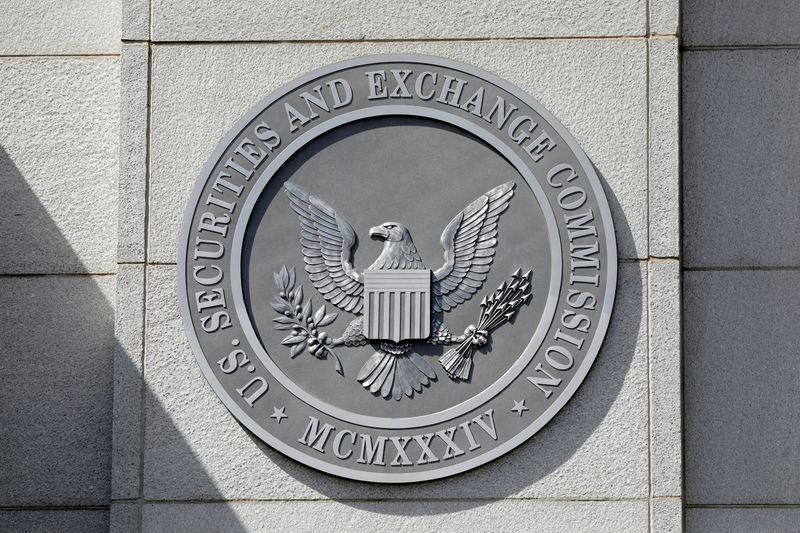By Davide Barbuscia
NEW YORK (Reuters) - Trade groups representing the private fund management industry sued the U.S. Securities and Exchange Commission (SEC) on Monday over a rule requiring firms that routinely deal in government bonds and other securities to register as broker-dealers.
The SEC adopted the rule last month to enforce stricter oversight and risk management controls on proprietary traders and other firms that it says have become important sources of liquidity in the U.S. Treasury market.
The groups say the rule is confusing and could capture investors that regularly trade securities but which are not dealers. As such, they allege it violates the Administrative Procedure Act, a federal law which requires regulators to act within their authority, justify new rules and take on board feedback.
The National Association of Private Fund Managers (NAPFM), MFA, and the Alternative Investment Management Association (AIMA) filed the lawsuit asking the U.S. District Court for the Northern District of Texas in Fort Worth to vacate the rule, they said in a statement.
"The Dealer Rule is indeterminate and leaves certain market participants uncertain of their need to comply with the dealer regulatory framework," said Bryan Corbett, president and CEO of MFA. "Alternative asset managers are not dealers. They are customers of dealers," he said.
The case is the third brought by the groups in recent months and is part of a broader wave of litigation by Wall Street firms looking to take advantage of conservative-leaning courts to overturn rules that could hurt their bottom line.
A spokesperson for SEC said the commission "undertakes rulemaking consistent with its authorities and laws governing the administrative process, and we will vigorously defend challenged rules in court."
The SEC rule is part of a push by regulators to improve the resilience of the U.S. government bond market at times of stress. The SEC introduced another major rule last year that will force more Treasury trades through clearing houses.
The broker-dealer rule, which was first proposed in March 2022, would apply to trading firms that either routinely express interest in trading at the best available prices on both sides of the market, or mainly derive revenue by trading the spread on government bonds, or from incentives offered by trading venues.
The final rule scrapped certain criteria that investors had said were too broad and could inadvertently capture market participants such as corporations, insurers and pensions.
Still, the hedge fund groups said it could capture non-dealing activity, harming investors and markets.
"This rule will force certain hedge funds – who are not dealers and have never been considered dealers – to either register as dealers, thereby subjecting them to an unworkable regulatory framework, or force them to significantly curtail or cease altogether their trading activity," Jack Inglis, AIMA CEO, said in the statement.

"Both results will lead to unnecessary and significant harm to markets, investors, and certain funds," he said.
The same three groups sued the SEC in December last over two new rules aimed at boosting transparency of short-selling. Along with other associations they also filed a suit in September last year over new private funds rules.